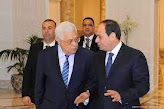Nearly 60 million eligible voters in Iran will decide the fate of four candidates to succeed President Hassan Rouhani. Iranians voted in a presidential election on Friday amid concerns over a low turnout with the conservative head of the judiciary, Ebrahim Raisi, widely seen as the front-runner.
“If elected, Raisi will be the first Iranian president in recent memory to have not only been sanctioned before he has taken office, but potentially sanctioned while being in office,” said analyst Jason Brodsky.Raisi – who like his political patron the supreme leader is
an implacable critic of the West – is under US sanctions for alleged
involvement in executions of political prisoners decades ago.
With uncertainty surrounding Iran’s efforts to revive its 2015 nuclear deal and growing poverty at home after years of United States sanctions, the turnout for the voters is being portrayed by some analysts as a referendum on the current leadership’s handling of an array of crises. Voter enthusiasm was dampened by the disqualification of many candidates and the deep economic malaise
Al Jazeera’s Dorsa Jabbari, reporting from Tehran, said there is lot of support behind Raisi. “The general public has one thing on their mind that they want some change from the moderate and reformist government they have seen over the past eight years,” she said.“There is a sense that the economic situation in the country is not going to change any time soon. So they are hoping Raisi will bring some kind of change.”
Iranian opposition groups abroad and some dissidents at home have urged a boycott of the vote they see as an engineered victory for Raisi.
A win for Raisi would confirm the political demise of pragmatist politicians such as Rouhani, weakened by the US decision to quit the nuclear deal and reimpose sanctions in a move that stifled rapprochement with the West.
But it would not disrupt Iran’s bid to revive the agreement and break free of tough oil and financial sanctions, Iranian officials say, with the country’s ruling elite aware their political fortunes rely on tackling worsening economic hardship.Tensions remain high with both the United States and Israel, which is believed to have carried out a series of attacks targeting Iranian nuclear sites and assassinating the scientist who created its military atomic program decades earlier.











